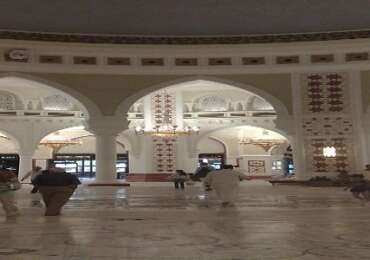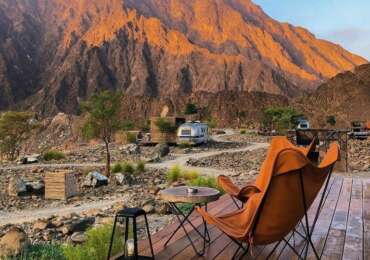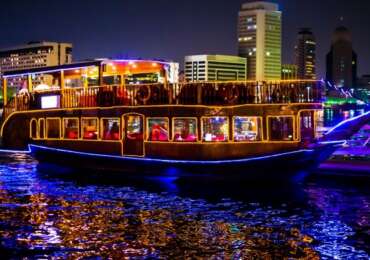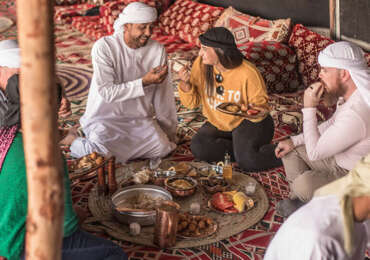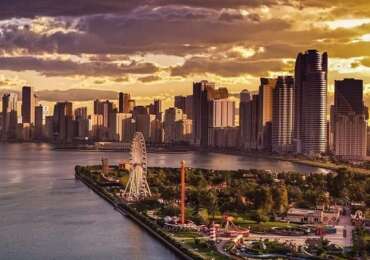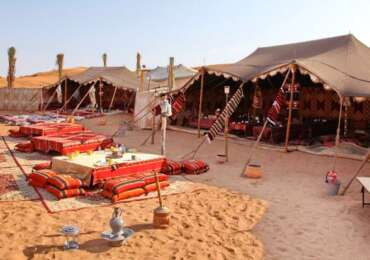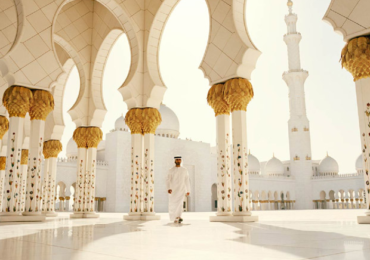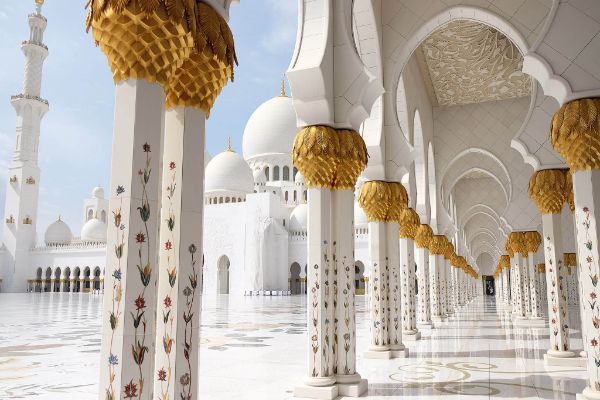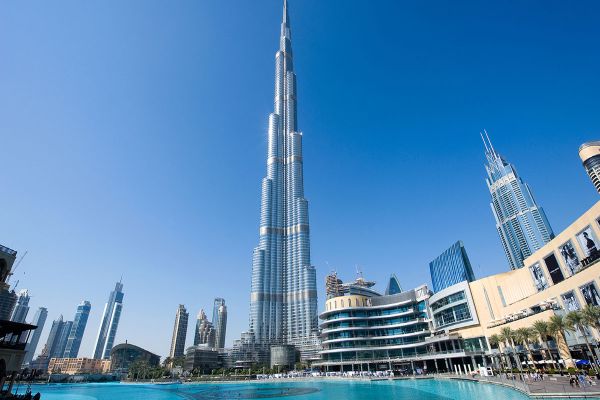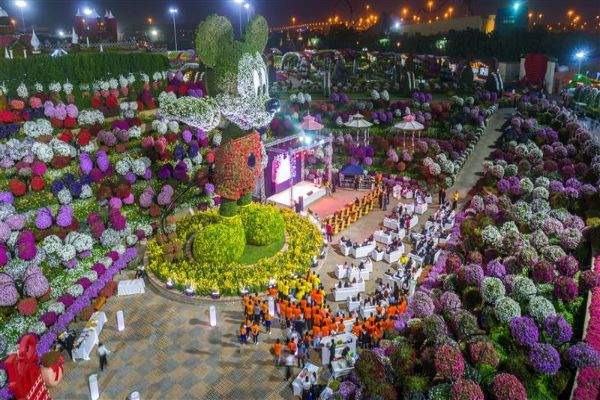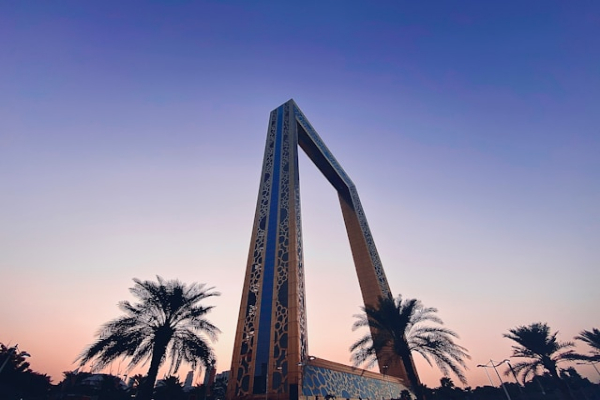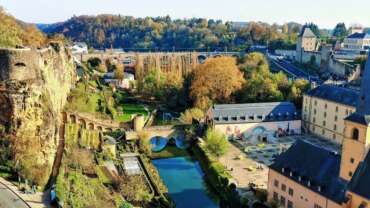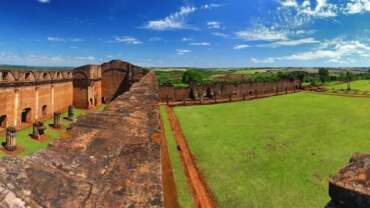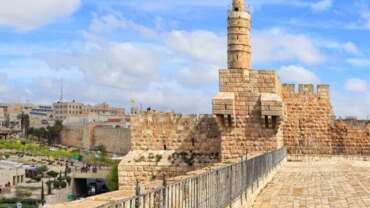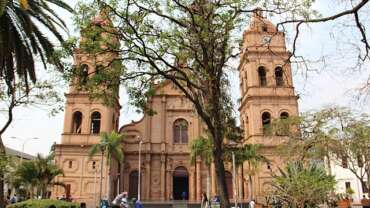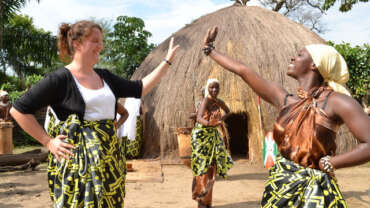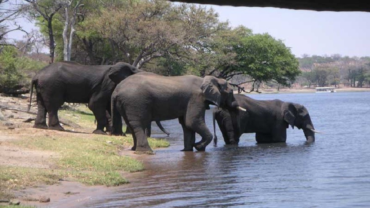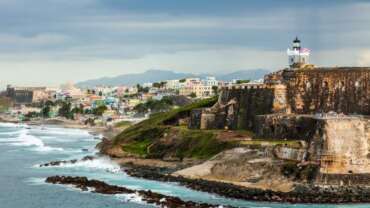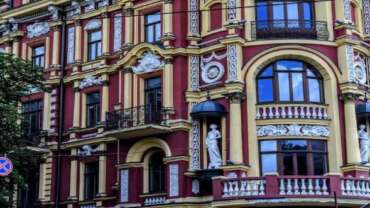UAE - Discover All That's Possible!
United Arab Emirates, federation of seven emirates along the eastern coast of the Arabian Peninsula. The largest of these emirates, Abu Dhabi (Abū Ẓaby), which comprises more than three-fourths of the federation’s total land area, is the centre of its oil industry and borders Saudi Arabia on the federation’s southern and eastern borders. The port city of Dubai, located at the base of the mountainous Musandam Peninsula, is the capital of the emirate of Dubai (Dubayy) and is one of the region’s most vital commercial and financial centres, housing hundreds of multinational corporations in a forest of skyscrapers.
The smaller emirates of Sharjah (Al-Shāriqah), ʿAjmān, Umm al-Qaywayn, and Raʾs al-Khaymah also occupy the peninsula, whose protrusion north toward Iran forms the Strait of Hormuz linking the Persian Gulf to the Gulf of Oman. The federation’s seventh member, Al-Fujayrah, faces the Gulf of Oman and is the only member of the union with no frontage along the Persian Gulf.
Historically the domain of individual Arab clans and families, the region now comprising the emirates also has been influenced by Persian culture owing to its close proximity to Iran, and its porous maritime borders have for centuries invited migrants and traders from elsewhere. In the 18th century, Portugal and the Netherlands extended their holdings in the region but retreated with the growth of British naval power there; following a series of truces with Britain in the 19th century, the emirates united to form the Trucial States (also called Trucial Oman or the Trucial Sheikhdoms). The states gained autonomy following World War II (1939–45), when the trucial states of Bahrain and Qatar declared independent statehood.
The rest were formally united in 1971, with the city of Abu Dhabi serving as the capital. The stability of the federation has since been tested by rivalries between the families governing the larger states of Abu Dhabi and Dubai, though external events such as the Persian Gulf War (1990–91) and an ongoing territorial dispute with Iran have served to strengthen the emirates’ political cohesion.
History of UAE
In the late 18th and early 19th centuries, the dominant tribal faction was the Qasimi family (Āl Qawāsim; singular Qāsimī), whose ships controlled the maritime commerce (notably fishing and pearling) concentrated in the lower Persian Gulf and in much of the Indian Ocean. Attacks on British and Indian ships led to a British naval attack in 1819 that defeated the Qasimi forces, and the British became dominant in the region.
The Qasimi family thus lost power and influence in the region, and the Banū Yās tribal confederation of Abu Dhabi became dominant. The Banū Yās were centred on the Al-ʿAyn and Al-Liwāʾ oases of Abu Dhabi, and their strength was land-based. Under the leadership of the Āl Nahyān (members of the Āl Bū Falāḥ tribe), the Banū Yās have been the most powerful element in the region since the mid-19th century. The principal sheikhs along the coast signed a series of agreements during that century—a general treaty of peace in 1820, the perpetual maritime truce in 1853 (which gave the Trucial Coast its name), and exclusive agreements in 1892 restricting their foreign relations to British discretion—and the sheikhdoms became known as the Trucial States.
A council of the Trucial States began to meet semiannually in 1952 to discuss administrative issues. In January 1968, following the announcement by the British government that its forces would be withdrawn from the Persian Gulf by late 1971, Trucial Oman and the sheikhdoms of Qatar and Bahrain initiated plans to form a confederation. After three years of negotiations, however, Qatar and Bahrain decided to become independent sovereign states, and the former Trucial States, excluding Raʾs al-Khaymah, announced the formation of the United Arab Emirates in December 1971. Raʾs al-Khaymah joined the federation in February 1972.
People of UAE
Ethnic groups
Only about one-ninth of the emirates’ residents are citizens. The remainder are mostly foreign workers and their dependents, with South Asians constituting the largest of these groups. Arabs from countries other than the United Arab Emirates and Iranians account for another significant portion. Southeast Asians, including many Filipinos, have immigrated in increasing numbers to work in various capacities.
Languages and religion
The official language of the United Arab Emirates is Arabic. Modern Standard Arabic is taught in schools, and most native Emiratis speak a dialect of Gulf Arabic that is generally similar to that spoken in surrounding countries. A number of languages are spoken among the expatriate community, including various dialects of Pashto, Hindi, Balochi, and Persian. English is also widely spoken.
Art & Culture of UAE
The arts
As is true of other countries of the Arabian Peninsula, traditional arts such as pottery, weaving, and metalworking occupy a prominent place in cultural life. The manufacture of handicrafts is an economic mainstay for smaller villages, providing goods to sell in the souks (open-air markets) that lie at the heart of small towns and large cities alike. Traditional storytelling remains a much-admired art form, and Emirati culture, like Arab culture on the whole, esteems poetry, whether it is classical, contemporary, or the Bedouin vernacular form called nabaṭī. Traditional music, such as the ḥudāʾ—sung originally by caravanners while on the trail—is enjoyed alongside popular music from abroad, and traditional dances such as the ʿayyālah (often called ʿarḍah), a type of sword dance, are performed on special occasions.
The Ministry of Information and Culture sponsors a number of events annually, including plays and music festivals, and helps support the numerous folklore associations in the emirates. The Sharjah Theatre Festival brings together talent from all seven emirates. Annual international book fairs in Sharjah and Abu Dhabi cities are highly regarded, and film festivals in the emirates are gaining in popularity and reputation. The Dubai Air Show has become a major regional event.
Cultural Life
The cultural traditions of the United Arab Emirates are rooted in Islam and resonate with the wider Arab world, especially with the neighbouring states of the Persian Gulf. The federation has experienced the impact of Islamic resurgence, though Islam in the emirates is generally less austere than in Saudi Arabia. Tribal identities in the United Arab Emirates remain fairly strong, despite urbanization and the presence of a large expatriate community, and the family is still considered the strongest and most cohesive social unit.
In several ways, change is apparent in the federation’s cultural life. Changes in attitudes toward marriage and the employment of women lead the region. The government takes an active role in the empowerment of women, and the constitution includes a number of guarantees and protections for women. Just under half of Emirati women participate in the labour force.
Although few Emiratis retain the lifeways of their forebears—practicing a nomadic lifestyle or plying the Persian Gulf in search of fish and pearls—many traditional modes of living continue. The major Islamic holidays, including the two ʿīds (festivals), Eid al-Fitr and Eid al-Adha, are observed among the Muslim majority, and traditional dress is still the norm. For women, traditional attire consists of a light chemise known as a dirʿ, which is often worn beneath a more ornate dress (thawb). Beneath the dress a sirwāl, a type of loose trouser, is worn. Outside the home or in the presence of strangers, women still cover themselves with a dark cloak known as an ʿabāyah and cover their heads with a scarf called a shāl, which may also serve as a veil (ḥijāb or burquʿ). Fabrics are often delicate, colourful, and highly embroidered, and Emirati women wear a variety of fine gold and silver jewelry.
The traditional garb for men consists of a long, simple, ankle-length garment known as a kandūrah or dishdashah (or also thawb). Usually made of white cotton, the garment may instead be made of a heavier material and in a variety of colours. The standard head covering is the ghuṭrah, a light scarf (usually white or white-and-red checkered, also known as a kaffiyeh) held in place by a black cord of camel hair known as an ʿiqāl. Colour, style, and material of headwear may vary among groups.
Emirati cuisine reflects the variety of cultural influences that the country has experienced over the centuries. Hummus, fūl (spiced bean paste), falafel, and shawarma (broiled meat served on flatbread) are dishes standard to the Arab world, whereas the influence of Iranian cuisine can be seen in the Emirati preference for rice as a staple and ingredients such as saffron, cardamom, and rose water as flavouring in desserts. Among the favorite dishes is makbūs—poultry, meat, or fish atop a bed of rice spiced with seasonings and dried lime. As in all countries of the region, lamb and chicken are the preferred meats, and fresh fruits—including dates, figs, lemons, and limes—and vegetables and flatbread (khubz) are daily fare. The preferred drink is coffee, served in the popular fashion—hot, strong, and sweet.
Welcome to Dubai - where anything is possible!
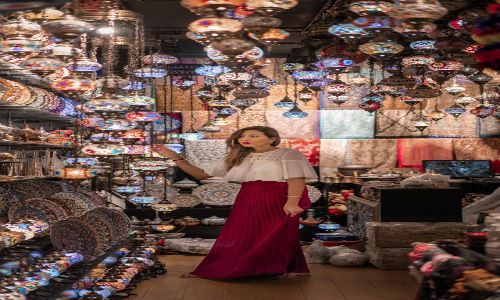
Once a small fishing village in the Arabian Gulf, Dubai is today one of the most cosmopolitan cities in the world. One of the seven emirates that make up the United Arab Emirates, Dubai is home to nearly 200 nationalities and offers a truly memorable experience to all visitors. Whether it is by the banks of the Creek, or at the top of the Burj Khalifa, the world’s tallest building, Dubai lives and breathes a sense of possibility and innovation. And with an unparalleled coastline, beautiful desert and magnificent cityscapes, memories are just waiting to be made here.




